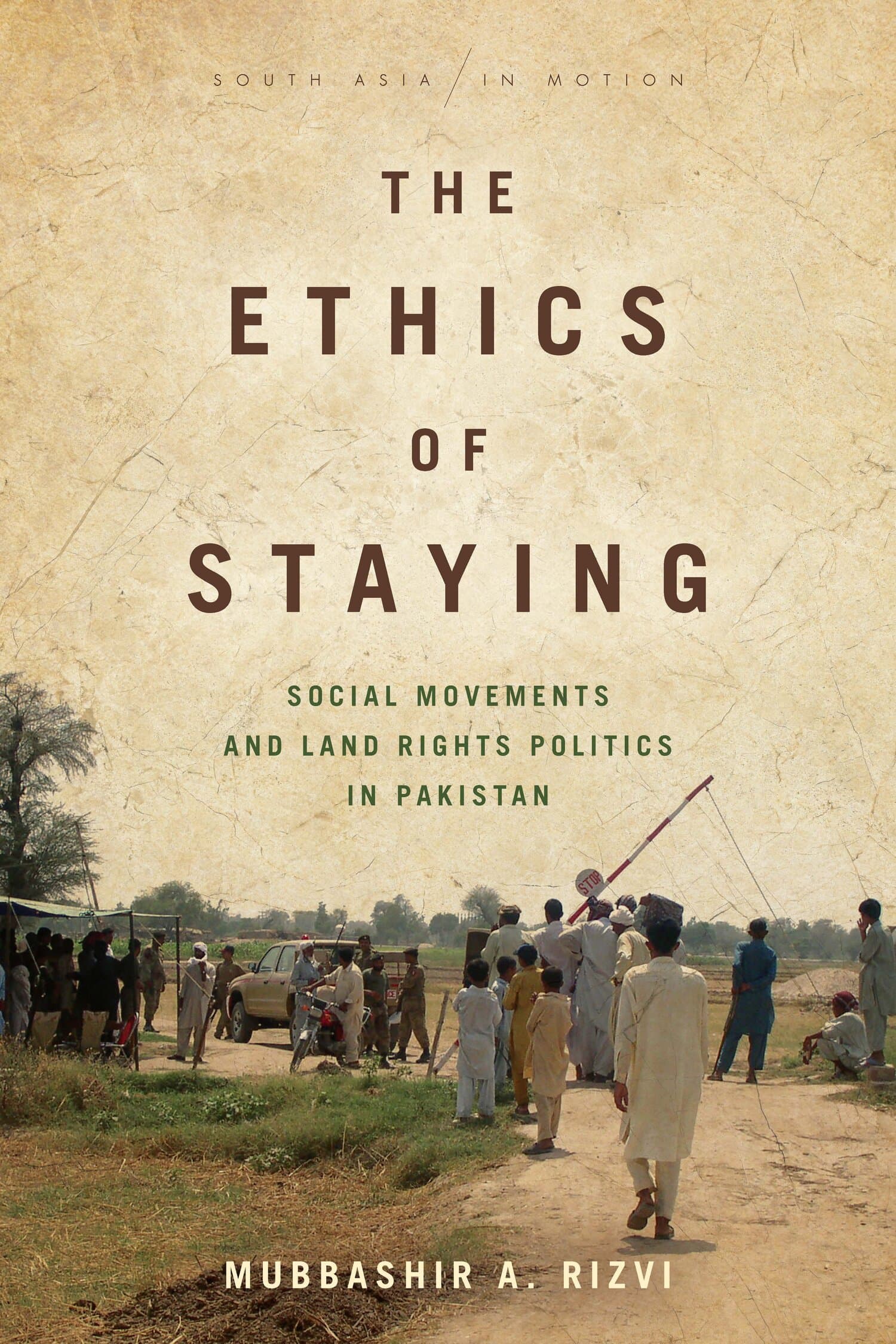The Ethics of Staying

The military coup that brought General Pervez Musharraf to power as Pakistan's tenth president resulted in the abolition of a century-old sharecropping system that was rife with corruption. In its place the military regime implemented a market reform policy of cash contract farming. Ostensibly meant to improve living conditions for tenant farmers, the new system, instead, mobilized one of the largest, most successful land rights movements in South Asia—still active today.
In The Ethics of Staying, Mubbashir A. Rizvi presents an original framework for understanding this major social movement, called the Anjuman Mazarin Punjab (AMP). This group of Christian and Muslim tenant sharecroppers, against all odds, successfully resisted Pakistan military's bid to monetize state-owned land, making a powerful moral case for land rights by invoking local claims to land and a broader vision for subsistence rights. The case of AMP provides a unique lens through which to examine state and society relations in Pakistan, one that bridges literatures from subaltern studies, military and colonial power, and the language of claim-making. Rizvi also offers a glimpse of Pakistan that challenges its standard framing as a hub of radical militancy, by opening a window into to the everyday struggles that are often obscured in the West's terror discourse.
"In this incisive study Rizvi blends history and ethnography to analyze the continuing impacts of colonial land colonization on relationships between state and society, city and country. Theoretically sophisticated, the book represents a milestone in reorienting how we think about contemporary, agrarian Pakistan."—David Gilmartin, North Carolina State University
"[The Ethics of Staying] addresses urgent questions, such as: How did sharecroppers disarm the Pakistani Army in the midst of dictatorial rule? Why and on what basis did they risk their lives for land they didn't legally own? How have they managed to survive in the context of extreme repression?....[This] book is a hopeful and necessary read."—Mel Gurr, PoLAR
"[An] engaging ethnographic account....The Ethics of Staying is a fascinating read and should be of interest to scholars of rural social movements, subaltern studies, and development."—Kurt Schock, Mobilization
"[Rizvi's] detailed and nuanced engagement with an immensely important movement is the real strength here, and readers are left with a convincing picture of claims that exceed legal property rights."—Humeira Iqtidar, Pacific Affairs
"The Ethics of Staying is a valuable contribution to ongoing debates on land conflicts and popular politics in South Asia. Rizvi's account of the [Punjab Tenants Association's] successful mobilisation for rights to land and livelihood also offers a glimmer of hope at a conjuncture where both Pakistan and India are turning increasingly authoritarian and display ever-decreasing tolerance for the rights-based claims of subaltern movements."—Kenneth Bo Nielsen, Journal of Contemporary Asia
"In The Ethics of Staying, Mubbashir Rizvi provides an immense depth of ethnographic detail surrounding a farmers' movement that captured the national imagination during a time of military rule. In its endeavour to examine the many internal and external dynamics that shaped the biography of a social movement, it also speaks to the future of any politics against commodification and dispossession. As such, it forms an extremely important contribution to scholarship on civil-military relations, social movements, and land in contemporary Pakistan."—Aisha Ahmad, Bloomsbury Pakistan




